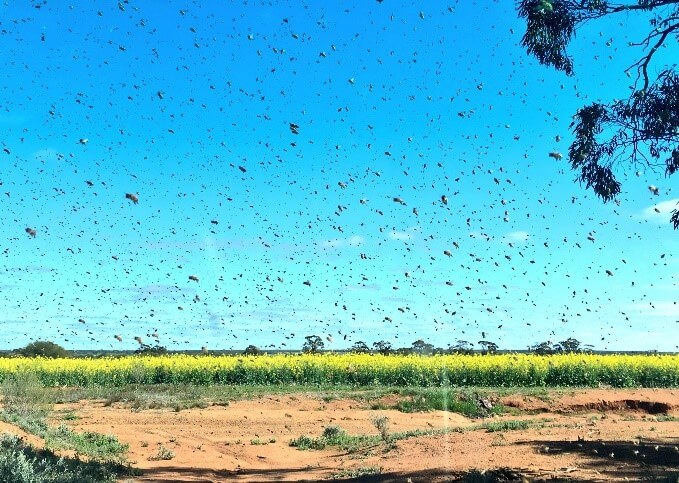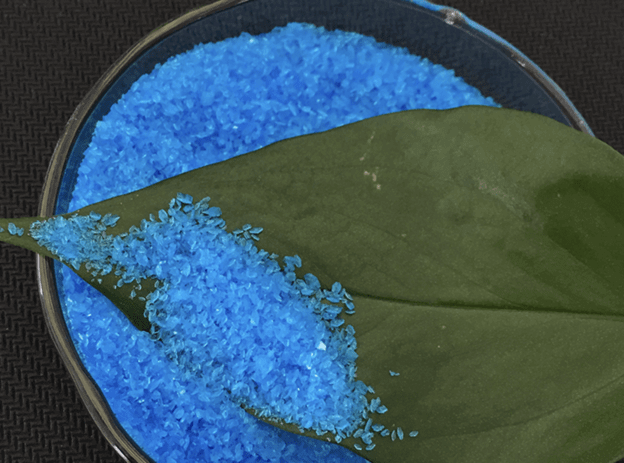The EU's "Farm to fork (F2F) strategy" announced in May, is "the heart of the "Green Deal," a kind of Holy Grail for European environmental activists. Not only is it intended to make Europe the first climate-neutral continent by 2050, it also "maps a new, sustainable and inclusive growth strategy to boost the economy, improve people's health and quality of life, care for nature, and leave no one behind." In fact, it is ill-conceived and, on all counts, will do much the opposite.
The F2F plan calls for increasing protected land (read: remove land from production) by 50%, reducing "chemical pesticides" by 50%, increasing organic production to 25% of total (triple its current percentage), and encouraging "agroecological practices," all by 2030.
There is so much to unpack here.
Such goals will further cripple an already inefficient agricultural system that is inadequate to provide for Europeans. In 2016, the EU had to import 93 million tons of food.
A huge meta-study in the journal Nature documented damage from 137 pathogens and pests associated with wheat, rice, corn, potato, and soybean worldwide and found that the losses of global food supplies from pests and disease is almost 25%. Without state-of-the-art pesticides and other advanced technologies, that number would surely be much larger.
"Pesticides" have become the bogeymen and targets of activists and "progressive" policymakers. So, at the outset, we need to define a "chemical pesticide," or better yet, what do EU officials consider a non-chemical pesticide? Everything is comprised of chemicals, after all, so this kind of Orwellian Newspeak has no place in agricultural science policy. We assume that, unfortunately, the term will be used to exempt "naturally derived," certified organic pesticides from the restrictions. That might sound like a reasonable and "safe" option, until one learns about "organic" pesticides.
In the EU, seeds coated with neonicotinoid pesticides (with amounts 1/100th the amount of active ingredient compared to spraying) are banned, so farmers are forced instead to spray pyrethroids to deal with flea beetle infestations. In other words, they are spraying compounds that are much more toxic to bees than neonic seed coatings, ostensibly "to save the bees."
Pyrethrum is a widely used organic insecticide. Derived from crushed Chrysanthemum flowers, it is a poorly-defined mixture of many neurotoxic compounds effective against most insects and spiders. The synthetic versions can be found in treatments for head lice and in sprays that kill wasps and hornets. It is now one of the few options for farmers of canola (oilseed rape) in Europe

Bee numbers are rising and canola crops are healthy in Australia and Canada (both of which use neonic seed treatments).
Each year the acreage of canola in the UK, where neonics are no longer permitted, has been dropping. Without access to neonic seed treatments, there is little hope farmers will be able to plant this crop for much longer. This year, the sugar beet crop in France (where neonic seed treatment was used until it was banned) dropped 50%. This massive reduction has forced the French government to reverse the ban, a decision that has been driving environmental groups wild.

Canadian canola without (left) and with (right) neonic seed treatment shows how the pesticide boosts yield.
Countries that follow science-based agriculture policies that permit technological advances continue to benefit from neonic seed treatment. It is noteworthy that modern synthetic pesticides are both safer and more effective; and some, such as neonicotinoids, can be used as seed coatings, avoiding the need for foliar spraying. Protecting crops while reducing the amount of pesticide applied to fields is a win-win.
In fact, many organic-certified pesticides pose significant environmental and human health risks. They include highly toxic chlorine products such as sodium hypochlorite, calcium hypochlorite and chlorine dioxide; and copper sulfate, a widely-used broad-spectrum organic pesticide that persists in the soil and is the most common residue found in organic food. The European Union determined that copper sulfate may cause cancer and intended to ban it, but backed off because organic farmers don't have good alternatives.
More than two dozen synthetic chemical pesticides are permitted in organic agriculture in the U.S., and organic farmers constantly demand more. The reason is revealing. Organic practices are so primitive and inferior that in the United States, constantly-challenged organic farmers periodically must go whining to the Department of Agriculture's National Organic Standards Board (whose members are from the organic industry), which rubber-stamps their requests for approval of new chemicals. However, in the F2F scheme, synthetic options will likely be classified as "high-risk" pesticides and be prohibited.

Copper sulfate is commonly used as a pesticide on conventional and organic tomato farms in Florida. Credit : Alibaba)
Perhaps the worst aspect of the F2F plan is the adoption of "agroecology" practices, the use of old, inefficient, low-yielding farming practices in the name of "sustainability." The F2F plans to spend €20 billion annually to advance this activist mumbo-jumbo.
Organic practices make up the bulk of agroecology. A study by the Institute for Water Research at Ben-Gurion University in Israel found that "intensive organic agriculture relying on solid organic matter, such as composted manure that is implemented in the soil prior to planting as the sole fertilizer, resulted in significant down-leaching of nitrate" into groundwater. With many of the world's most fertile farming regions experiencing drought, increased nitrate in groundwater is hardly a hallmark of sustainability.
Moreover, as agricultural scientist Steve Savage has documented on his website, wide-scale composting generates significant amounts of greenhouse gases such as methane and nitrous oxide. Compost may also deposit pathogenic bacteria on or in food crops, which has led to more frequent occurrences of food poisoning in the U.S. and elsewhere.
Organic farming might work well for certain local environments on a small scale, but its farms produce far less food per unit of land and water than conventional ones. The low yields of organic agriculture — typically 20%-50% less than conventional agriculture—impose various stresses on farmland and especially on water consumption.
Perhaps the most illogical and least sustainable aspect of organic farming in the long term is the exclusion of "genetically modified organisms," but only those that were modified with the most precise and predictable techniques such as gene splicing (recombinant DNA technology) and gene editing. Except for wild berries and wild mushrooms, virtually all the fruits, vegetables and grains in our diet have been genetically improved by one technique or another, often through what are called "wide crosses," which move genes from one species or genus to another in ways that do not occur in nature. Therefore, the exclusion from organic agriculture of organisms simply because they were crafted with modern, superior techniques makes no sense.
Lower crop yields are inevitable given organic farming's systematic rejection of many advanced methods and technologies. If the scale of organic production were significantly increased, the lower yields would increase the pressure for the conversion of more land to farming and more water for irrigation, both of which are serious environmental issues.
Europe already needs to import millions of tons of food and feed each year to sustain their population and animal agriculture. If organic/agroecology farming practices are more widely adopted, European food/feed imports and food costs will rise dramatically.
Still, if Europe wants to follow this path, that is their choice. But it is essential that they are not allowed to export this irrationality to the developing world. Unfortunately, the European Commission has stated that it will seek to mobilize all tools of external action and international partnerships to help develop an ambitious new UN Global Biodiversity at the Conference of the Parties to the Convention on Biological Diversity in 2021. The Farm to Fork Strategy [of agroecology] aims to promote a global transition to sustainable food systems, in close cooperation with its international partners.
This is the triumph of ideology over scientific realities.
Most of the foreseeable global population increases will occur in the developing world. Forcing yield-reducing, environmentally destructive agroecology on those countries will cause worsening food security and poverty. Enlighted countries cannot permit this to happen.
Overall, the Farm to Fork scheme is unscientific and unwise. Some of its defenders call it aspirational. We think, for Europe, suicidal is more accurate. And, for the developing world, it is genocidal.
Rob Wager is in the Department of Biology at Vancouver Island University. Follow Rob on Twitter @RobertWager1. Henry I. Miller, a physician and molecular biologist, is a Senior Fellow at the Pacific Research Institute. He was the founding director of the U.S. FDA's Office of Biotechnology. Follow Henry on Twitter @henryimiller, and sign up for notification of his new articles at henrymillermd.org.

